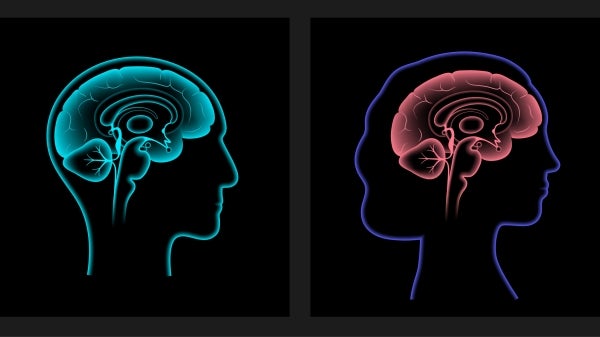ASU chemical engineering student wins poster award at national conference

Anikki Giessler stands in front of her award-winning poster on DNA clustering behaviors. Photo courtesy of Anikki Giessler
With one year of presentation experience at the American Institute of Chemical Engineers annual meeting under her belt, Anikki Giessler returned to the AIChE poster sessions in 2017 to share her research as a senior and took home one of the poster session awards.
“My experience at AIChE was great,” said Giessler, a chemical engineering student at Arizona State University's Ira A. Fulton Schools of Engineering. “What I have found is that this is a meeting of genuinely curious people and so the ones that interact with you about your poster or work are easy to talk to.”
Months prior, she brainstormed with her research partner Gabe Salmon on what she should showcase of their most recent work. She submitted her poster to the “Separations” category for a second year, allowing her to highlight research completed under Alexandra Ros, an associate professor at ASU's School of Molecular Sciences.
“Anikki went through several mentoring discussions with me on how to structure her poster and what to present on it," Ros said. "She also practiced presenting her poster within one of my group meetings.”
After consolidating her ideas and creating the poster, she traveled to Minneapolis for the American Institute of Chemical Engineers Conference, which was held Oct. 29–Nov. 3.
Her poster, titled “Dielectrophoretic Response of Condensed DNA Clusters in AC Fields,” had two main goals. The first was to investigate DNA clustering behaviors at low frequency AC conditions, and the second was to look into the size, electrokinetic mobility and dielectrophoretic effects of DNA clusters. By observing these clusters, they could potentially lead to improved sorting efficiency, and therefore separate larger DNA fragments for new and emerging next-generation sequencing.
This year, the competition included 400 different posters. Giessler presented alongside other competitors in a two-hour poster session so she could meet with judges, who looked for the presenter’s knowledge of the field, their ability to visually and orally present the data and their understanding of the data and its significance. Winning the AIChE poster session award means excelling in all three categories.
Giessler’s winning poster concluded that work on the topic she presented is ongoing. In the future, her research group hopes to automate tracking techniques to accelerate the determination of the electrokinetic mobility of DNA clusters, which has so far only been done manually using imaging software. Additionally, they continue to investigate how ionic strength impacts DNA clustering behavior.
“In my last semester here at ASU, I am working on finishing a publication of this research under Dr. Ros,” Giessler said. “I have also just finished applying to a few doctoral programs where I hope to continue research on microfluidics.”
More Science and technology

3 ASU faculty members earn highest honor for early-career scientists, engineers
Three faculty in The College of Liberal Arts and Sciences at Arizona State University have been awarded the Presidential…

The Polytechnic School at ASU hits milestone mark at 10 years
The year was 2014.Taylor Swift released “1989.” "Frozen” and its soundtrack were stuck in the minds of many.Facebook was…

Study finds cerebellum plays role in cognition — and it's different for males and females
Research has shown there can be sex differences between how male and female brains are wired.For example, links have been made…